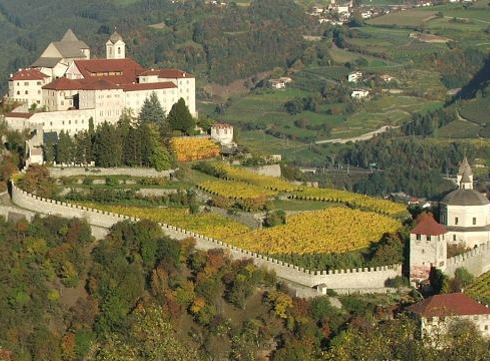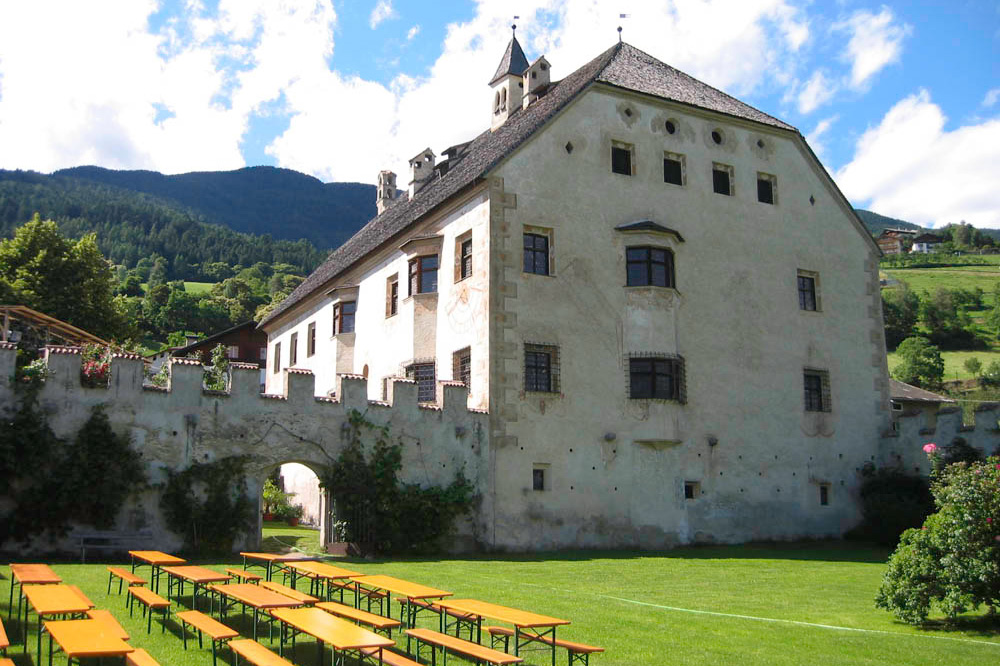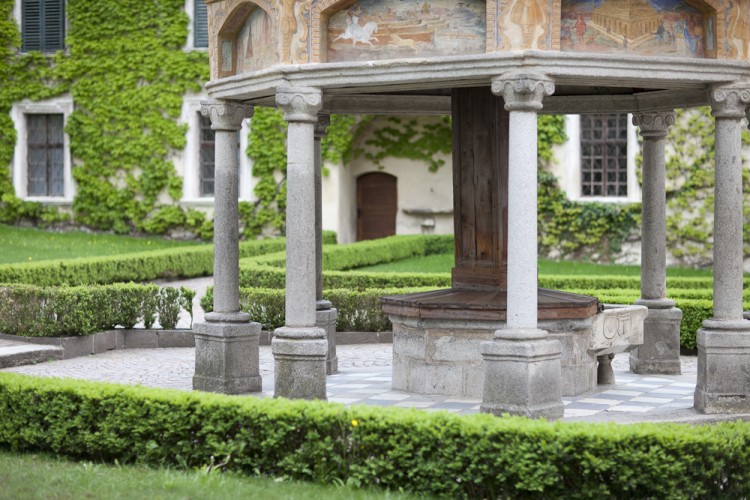Places of Interest in our Neighbourhood
Abbey Monastero of Sabbiona
There is much to tell about the historical mountain fortress near Chiusa. The Bishop of Sabiona moved to Bressanone in around 1000 A.D. Up until then, the Church of the Holy Cross had been the cathedral of the Diocese of Sabiona for four hundred years. The mountain, referred to locally as “The Holy Mountain" is thus one of Tyrol’s oldest shrines. The widely known Ladin cloister was already referenced in the historical record back in 1503. For the past 300 years, a nunnery has occupied the mountain. Today, the monastery itself is not open to visitors since nuns still live there. Visitors can see its three churches and a chapel, though.
Velthurns Castle
The castle complex from the 16th century served the prince-bishops of Brixen (Bressanone) as their summer residence until 1803. The castle’s deer garden was famous in its day, and there was also an enormous outdoor aviary and a fish pond. The main attractions today are the precious Renaissance furnishings with wood paneling, inlay work, carved portals, ceramic stoves, frescoes and an archaeological collection. The museum also houses the collection of South Tyrolean artworks from the 15th to 20th cen. which were bought or confiscated between the World Wars by the Italian Ministry of Culture and returned to the Province of South Tyrol in 1990.
Silver Mine Villanders
The mine at Pfunderer Mountain was first mentioned in historical documents in 1140 AD and was given by Emperor Friedrich Barbarossa to the Neustift monastery in 1177. The entire Villanderer Mountain is perforated with mine shafts. Within an elevation difference of 750 m. (2,500 ft.), sixteen tunnels were bored over the centuries. The entire network measures 16.5 km. (10 miles), of which two thirds were excavated by hand and one third were blasted with explosives. It provides a view of traditional ore removal methods, the production, and the processing as well as the working conditions for the miners, who had a life expectancy of 35 to 40 years.
Augustinian Abbey of Novacella
This is one of the most significant monasteries in Tyrol, and the majority of it is open to the public: the Baroque collegiate church with the famous ceiling frescoes by Matthäus Günther, the medieval cloister with frescoes from the 14th and 15th centuries, the library with its precious manuscripts, and the art gallery with its impressive collection of Gothic panel paintings (by Friedrich Pacher, Marx Reichlich, and Andreas Haller). To visit are too the historic Baroque gardens with piscina and aviary (guided tours 2 May-12 October). In addition to these unique gardens, the herb garden boasts around 75 species of local and exotic herbs.



